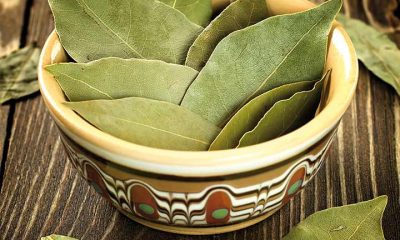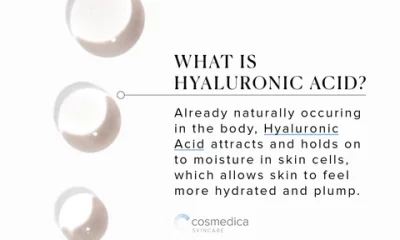Health
Health Benefits of bananas (a guide)
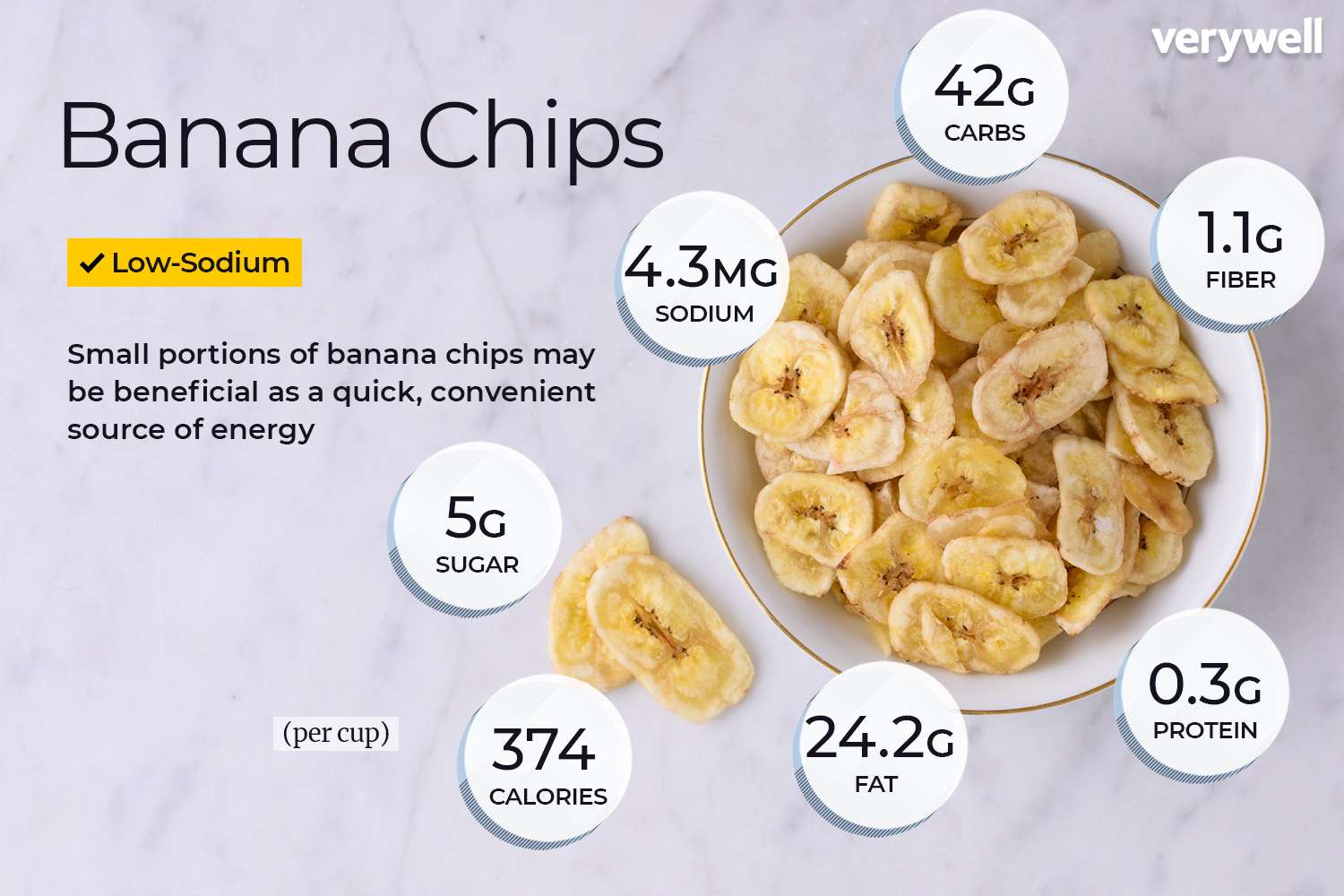
Health Benefits of bananas
Soft and satisfying, practical to take away and eat on the go, present all year round on the stalls of our markets, the banana is a fruit that is unanimous! But is it as nutritionally good as it is for our taste buds? Zoom in on the health benefits of bananas.
Its name comes from the Portuguese banana itself borrowed from the Arabic “banana” meaning “finger”. For the record, the banana would have been the first fruit cultivated by men, and its culture dates back some 12 thousand years!
When we speak of banana without specifying the variety, it is the so-called “dessert” sweet banana that is eaten raw and sweet. There is a second type of bananas known as “vegetable bananas” generally eaten cooked and salted, which belong to the plantain species.
The health benefits of bananas
Bananas contain a lot of nutrients:
Bananas are very nutrient-dense fruit, which means they provide a lot of nutrients in a low volume. Dried bananas are richer in nutrients than fruit bananas, but they are also higher in calories.
The banana fits perfectly within the framework of a slimming diet because it is rich in fibres, minerals, resistant starch: it is therefore very satiating and allows not to crack on calorie bombs.
•It is in particular very well provided with antioxidants, which would make it effective in the prevention of cancers, in particular colorectal cancer.
•It has anti-acid and anti-ulcer effects, which protect the stomach lining from inflammation and which would help prevent ulcers.
•The sugars in bananas are largely resistant starch, which behaves like a “slow” carbohydrate, improving the sensitivity of cells to insulin and tending to regulate blood sugar. This fruit is therefore indicated in people suffering from type 2 diabetes or pre-diabetes.
•It is very rich in potassium, a mineral known to prevent and fight against hypertension and limit the risk of cardiovascular disease.
•It is well supplied with beta-carotene (a precursor of vitamin A), contributes to healthy skin, the growth of bones and teeth, and protects against infections.
•It is rich in magnesium, so it is a very good natural “anti-stress”.
•During sport
Very digestible, rich in carbohydrates and minerals, bananas are the favourite fruit of athletes!
Good to know: the riper the banana, the higher its glycemic index, the less ripe it is, the lower it is. It is therefore wise to prefer a ripe banana before the effort for the boost effect, then a less ripe banana after the effort, for recovery and to recharge its glycogen stocks.
Bananas are also very well supplied with potassium, a mineral essential for muscle recovery, and with magnesium, which is very effective in limiting cramps.
During pregnancy
Pregnant women have increased caloric and nutritional needs, especially from the second trimester. But she frequently suffers from digestive disorders (nausea, bloating) linked to hormones as well as the place the baby takes in her womb, compressing the stomach and intestines.
Bananas, very digestible and rich in carbohydrates, fibres and minerals will therefore provide them with the energy and nutrients necessary to meet their needs and those of the baby. It is therefore a real ally of pregnancy!
When you want to lose weight
Rich in carbohydrates and calories, is banana to be excluded during a diet? No, the banana is certainly a sweet fruit, but it has a large number of nutritional advantages that make it valuable as part of a slimming diet.
Rich in fibres, minerals and resistant starch, bananas effectively satisfy small hunger pangs and not crack on a chocolate bar 4 times more caloric.
The banana also contains tryptophan, an amino acid precursor serotonin, the hormone of the well-being. Perfect for fighting frustrations during a diet!
Are bananas high in calories?
Sweet bananas are among the sweetest fruits, and therefore the highest in calories. A medium-sized banana weighs around 120g and provides about a hundred calories, the average caloric value of the banana being 90 calories per 100g.
Health benefits of dried bananas
Dried banana is a banana from which water has been extracted, making it both richer in nutrients but also calories.
Dried bananas are therefore about three times richer in nutrients, minerals and vitamins than fresh bananas, which makes them extraordinarily interesting from a dietary point of view.
Be careful, however, its caloric value also triples and reaches 250 calories per 100 g, which makes it very energetic.
Dried bananas are therefore a perfect takeaway snack for hiking, fitness walking or before a run because it provides energy and essential minerals and vitamins to the body during physical exercise.
Health benefits of banana juice
Given its low water content, it is not possible to make pure banana juice using an extractor, the product obtained being more like mash.
Banana-based juices are usually made with one or more other fruits that are richer in water, such as orange or apple.
In general and whatever the fruit, it is better to eat it whole and fresh rather than to drink it in the form of juice, where it will tend to lose some of its nutritional qualities (fibre, certain vitamins sensitive to oxidation) Besides, the glycemic index of fruit juice is always higher than that of whole fruit and drinking fruit juice is much less satiating than munching on fruit.
Health benefits of banana chips
Banana chips are made from sliced, fried and salted plantains. I insist: crisps, whether potato, carrot, beet or plantain banana are always fatty foods, very salty and nutritionally denatured insists the specialist, they are very caloric and do not present any particular dietary interests.
On the other hand, it is possible to cook them in the oven rather than in a deep fryer, which greatly limits the intake of extra fat and calories.
What are the side effects of bananas?
Without being able to speak of disadvantage, the banana is indeed richer in calories than the average fruit, it is, therefore, to be consumed in moderation for anyone who is watching their weight.
We will therefore take care to alternate it with other less sweet fruits, such as apple, pear, berries (blackberries, blueberries, blackcurrants…), melon, watermelon or even citrus fruits.
Tips
I recommend eating the fruit whole and fresh, rather than drinking it in the form of juice, which loses some of its nutritional qualities (fibre, certain vitamins sensitive to oxidation), which has a higher glycemic index and which is less filling than the whole fruit.
Health
10 shocking health benefits of rosemary tea
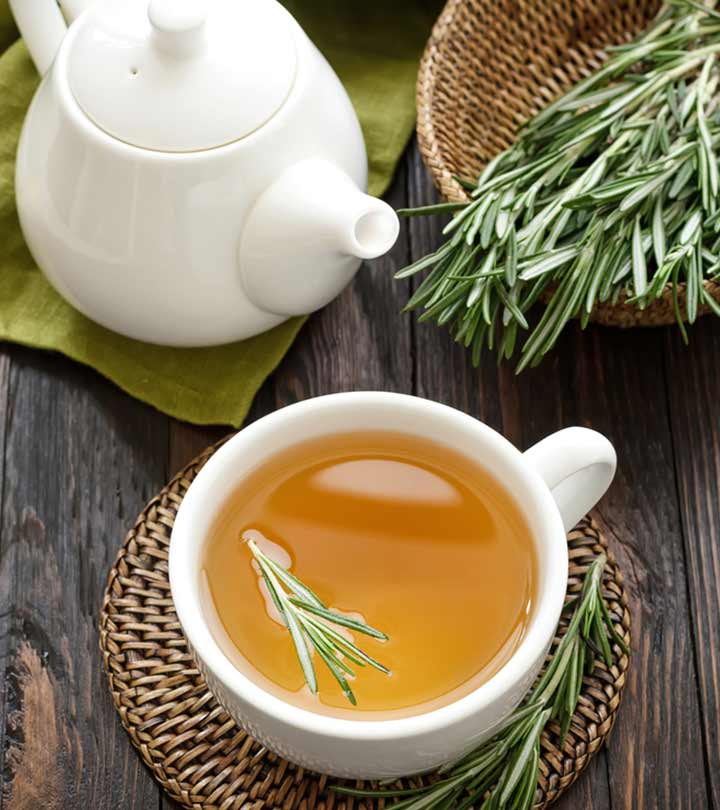
Table of Contents
Health
Benefits of fasting for 24 hours
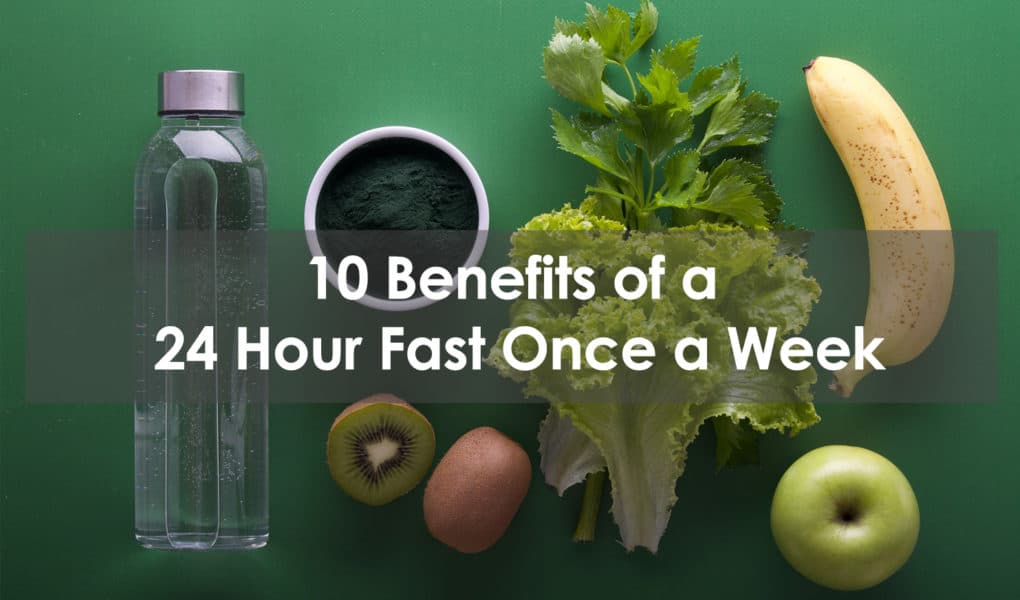
Discover the benefits of fasting for 24 hours.
24-hour intermittent fasting is often recommended for weight loss, but also its many health benefits.
In this article, I detail the benefits of intermittent fasting, and particularly its practice over 24 hours. You will also be able to find my testimonial and my advice for a successful 24-hour intermittent fasting.
24hr Intermittent fasting to live longer in good health!
This sentence comes up constantly when one is interested in the subject. Simple fashion effect or real health interest? That’s the real question.
The objective of this practice is based on calorie restriction and resting the digestive system as a whole.
When we eat too much, binge, and get too much protein, our aging process is accelerated. Our body ages faster. To counter this effect, it is, therefore, necessary to fast. You boost your production of growth hormone, a hormone of youth.
In practice, it remains very complicated. It was Dr. Valter Longo who simplified the practice of intermittent fasting to reap all the health benefits. But in reality, is it effective?
The benefits of 24 hours intermittent fasting
Many scientific studies have highlighted the following health benefits of intermittent fasting:
• Promote weight loss, maintenance, lower bad cholesterol and increase well.
• Reduce cardiovascular and cancer risks.
• Regulate blood sugar by lowering insulin production and increasing fat metabolism.
• Lower the markers of inflammation ( responsible for the aging process ).
• Stimulate growth hormone production ( 2000% during 24-hour intermittent fasting ). This molecule helps you fight to age, tap into your fat and increase your muscle mass.
• Regulate hormonal disturbances after meals.
• Diversify the composition of the intestinal flora.
• Improve the quality of sleep.
It should be noted that these benefits are mainly found in a population that is overweight or obese, sedentary, or suffering from metabolic disease. The effects of intermittent fasting in healthy, physically active, or athletic people seem small to non-existent.
Intermittent fasting and weight loss
According to scientific research, intermittent fasting is effective for weight loss.
The main reason for the effectiveness of intermittent fasting on weight loss is calorie restriction.
Indeed, skipping one or more meals considerably reduces your food consumption. You then find yourself in an energy deficit, and your body has no choice but to draw on the stock of glycogen and fats to continue to function.
Practiced 1 to 2 times a week, over 3 to 24 weeks, intermittent fasting can lead to a weight loss of 3 to 8% of the initial weight, with a non-negligible share of abdominal fat (reduction in the circumference of cut).
However, over the long term, the evidence on the effectiveness of intermittent fasting remains very weak. We don’t know if, as with all low-calorie diets, it leads to a Yoyo effect and significant regain of lost pounds.
To lose weight permanently, mainly fat, while maintaining your muscle mass, it is advisable to combine a slight caloric restriction and the practice of sport regularly.
Need to lose weight permanently?
My Sport to lose weight program has already enabled hundreds of people to lose weight, improve their health and be in better shape! It includes sports sessions in videos, tools to calculate your fat loss, tips for starting running, recipes, and much more… It’s never too late to start the sport and lose weight for your health.
Opinion on the intermittent fasting 24h
So I wanted to get to the bottom of it and test this practice. To simplify things, Dr. Longo has been testing different protocols for several years. Simpler protocols to apply daily while maintaining the benefits. For people with a healthy lifestyle, practicing 24 hours a month is very effective.
So I fasted for 24 hours. The easiest way is to start after dinner. You eat dinner normally, then nothing until dinner the next day. Hydrate well. You can also consume tea, coffee, infusions but without sugar.
I was afraid of being too hungry, of being a wreck unable to move. And not at all. I did my intermittent fast one day back from vacation, in the car. I felt good, without a stroke. What a pleasure to sit down to eat in the evening, even if the goal is to eat normally and no more than usual.
I resumed the sport the next day with a big day ( 3h30 of cycling chained to 1h of jogging ). I felt good, I didn’t have any cravings. I even recovered better. I am full faster on the meals that follow. The results are very positive.
However, here are some tips to guide you:
• No sport on the day of intermittent fasting, or a short cardio session (30 minutes).
• Take care. Get out of your house, otherwise, the day will be too long to manage unless you have plenty of tasks to accomplish.
• Don’t throw yourself on the food when you eat again. Don’t say to yourself: “it’s good, I’ve done the hardest I can let go”.
• Remember to drink well ( 1.5 to 2 liters of water ) and take hot drinks for satiety.
Be careful if you have medical treatment, do not do it. I do not know the actions of this practice under these conditions. A drug does not have the same effect in these conditions, so check with your doctor.
I await your reactions after your tests. Intermittent fasting is increasingly practiced in the United States, to fight against junk food and diseases of civilization. Its health benefits are undeniable. Live old and above all live better!
Health
Benefits of hibiscus tea for skin

Table of Contents
- Benefits of hibiscus tea for skin
- Greater elasticity in the skin
- Prevents and fights cell damage
- Hydrates in depth
- Unifies skin tone
- Discover the benefits of hibiscus tea for skin.In today’s post we want to offer you a wonderful option to enhance your health and even take care of your beauty with a gift from nature whose qualities have been known for thousands of years.
We want to talk about the Hibiscus tea, a plant native to China and Japan, also known as China rose, whose extract has a wide range of properties, among which are antiseptic, digestive, diuretic, and others that we will detail below.
Its cosmetic properties are so amazing that it has been called “vegetable Botox”, rich in antioxidants and vitamin C.
Its effects after constant consumption in the form of an infusion, for example, have been compared to the effects of Botox injections, since its tightening effect helps to hide expression lines and sagging of the face.
Its active components act at the cellular level, nourishing and moisturizing the dermis, creating a wonderful anti-aging effect.
There are 5 different varieties of Hibiscus in the world: Hibiscus Rosa Sinensis, the best known in Spain, Hibiscus esculentus, Hibiscus sabdariffa, and Hibiscus tiliaceous.
Its flower is edible and its different forms of presentation, in powder, in preparation for infusion, or syrup, allow us to take it comfortably and prepare masks that will surely become great allies for your skin and hair.
In India, hibiscus has traditionally been used to treat hair problems, reduce dandruff, moisturize the scalp while nourishing and strengthening it, and even prevent the appearance of gray hair.
Benefits of hibiscus tea for skin
Greater elasticity in the skin
As we have previously mentioned, the Hibiscus tea will provide us with its tensor effect, greater elasticity, and firmness in the skin, keeping it looking young for longer.
Prevents and fights cell damage
Hibiscus tea fights free radicals that cause oxidation that starts the aging process in the skin, the largest and heaviest organ in the body.
Hydrates in depth
After using the usual cleansers we remove the moisture and natural agents that protect our skin, if we regularly use hibiscus masks we will ensure that our facial skin is sufficiently hydrated avoiding dryness and its unwanted consequences.
Unifies skin tone
Hibiscus is known for its exfoliating and anti-blemish action and its beneficial effects in cases of hyperpigmentation, unifying the tone and softening the features.
For all these benefits, the Hibiscus tea is considered a natural and effective anti-aging recipe, do not forget to try it.
Related Searches…
Hibiscus tea for skin whitening
Hibiscus tea benefits hair
How to make hibiscus tea
Benefits of hibiscus for lips
Hibiscus for skin tightening
How to use hibiscus for acne
Benefits of hibiscus oil for skin
Hibiscus flower benefits for hair and skin
Hibiscus tea effect on kidneys
Hibiscus powder benefits
Homemade hibiscus face cream
Hibiscus soap benefits for skin
-

 Benefits4 months ago
Benefits4 months agoThe Benefits of Joining Gym Lumolog – Improve Your Fitness & Health
-

 Food1 year ago
Food1 year ago10 + Benefits of carrot juice and side effects
-

 Health1 year ago
Health1 year ago50 Super Healthy (And Very Often Cheap) Foods
-

 Health1 year ago
Health1 year ago5 Shocking health benefits of kinkeliba and side effects
-

 Health1 year ago
Health1 year ago15 health benefits of soursop leaves tea and side effects
-

 Food1 year ago
Food1 year ago8 shocking benefits of leek juice and side effects
-

 Health1 year ago
Health1 year ago15 Benefits of lipton tea and side effects
-

 Health1 year ago
Health1 year agoBenefits of guava leaves Sensually



